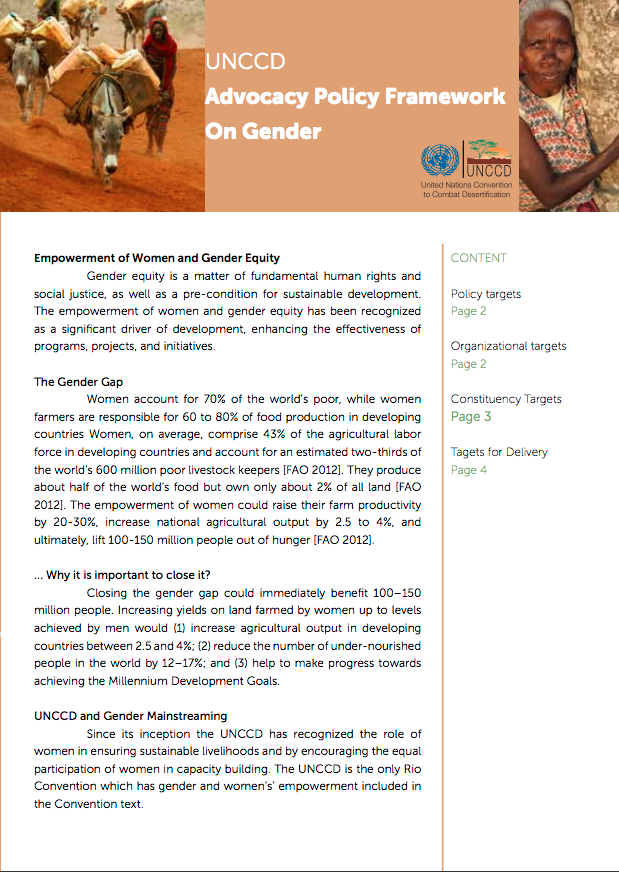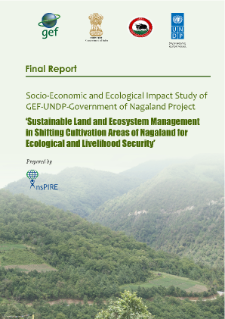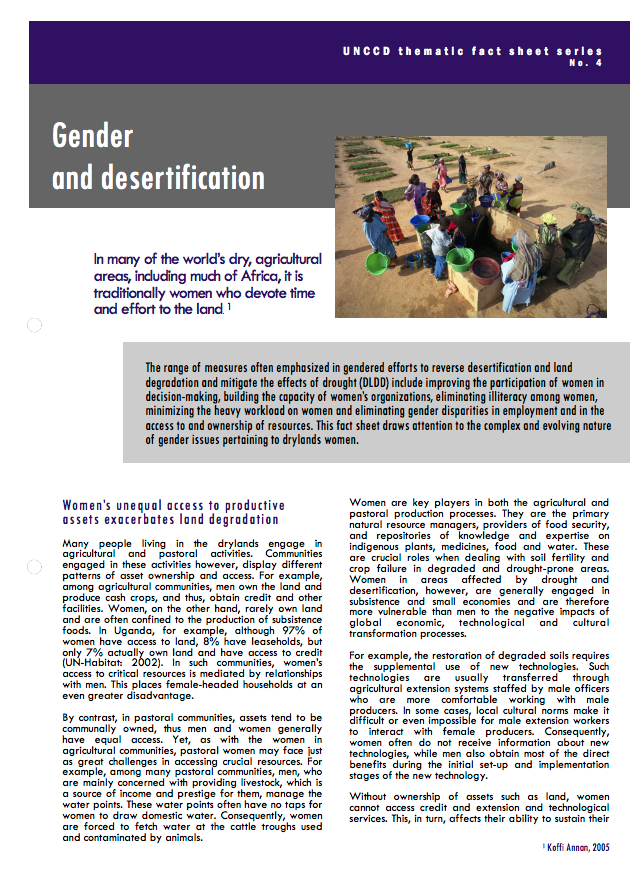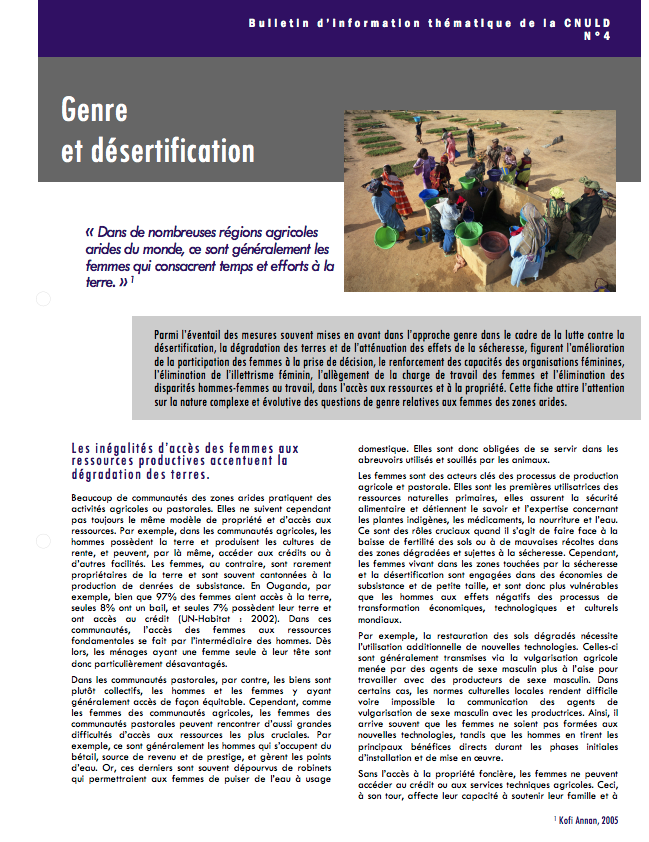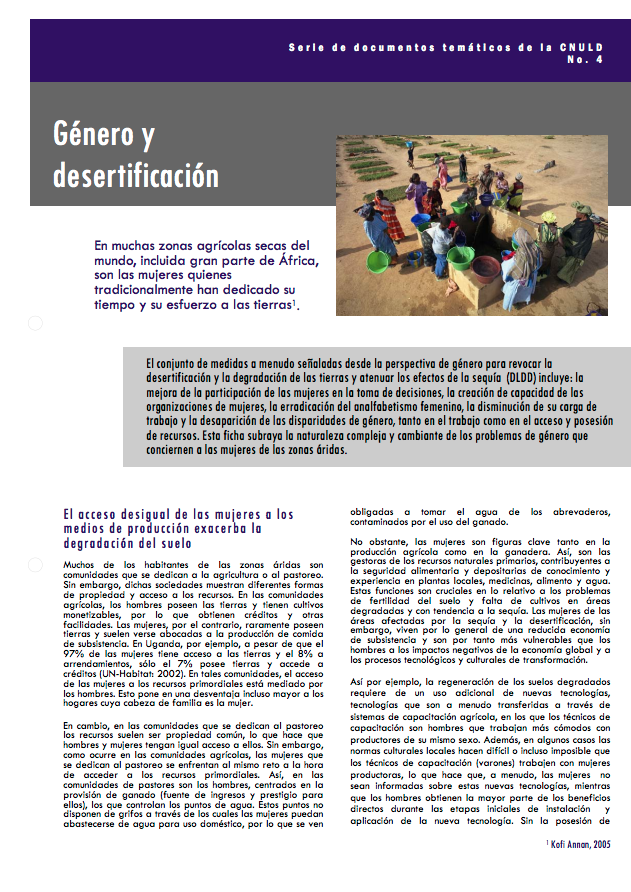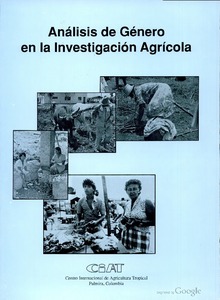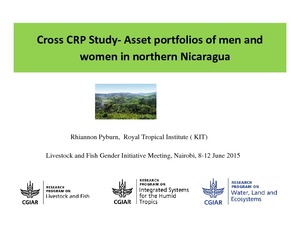UNCCD Advocacy Policy Framework on Gender
The UNCCD Advocacy Policy Framework (APF) on gender, approved by the COP10 (Decision 9), demonstrates the benefits of mainstreaming gender in Desertification/Land Degradation and Drought (DDLD)/ Sustainable Land Management (SLM) actions at national and local levels. The framework recognizes that gender mainstreaming has to take place at various levels involving multiple stakeholders. It is through the full participation of local people, especially women, that the efforts efforts to combat desertification can be most effective.

